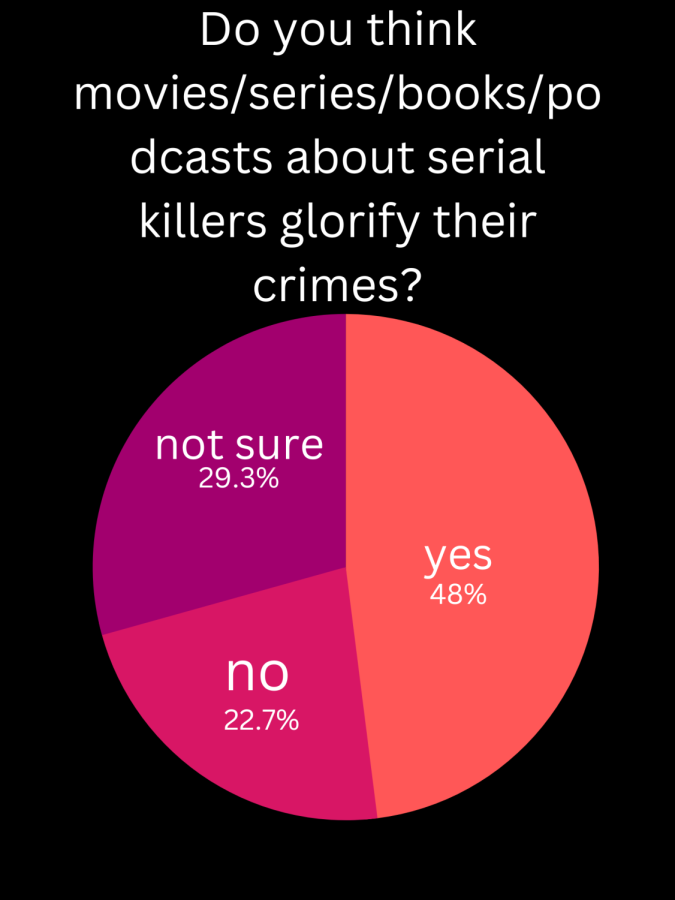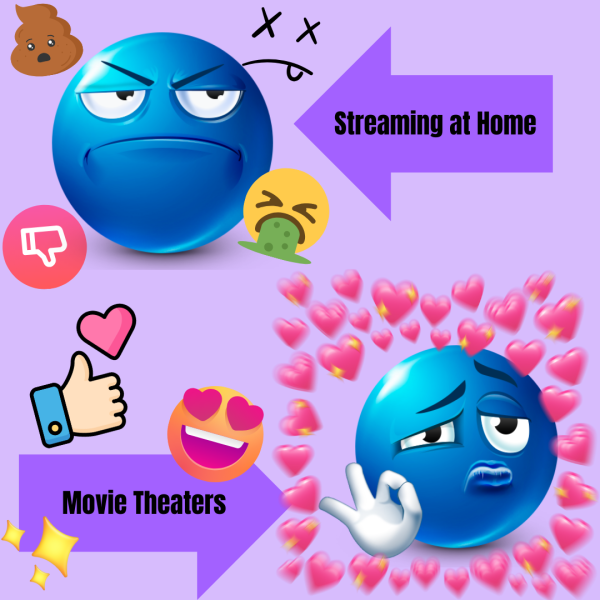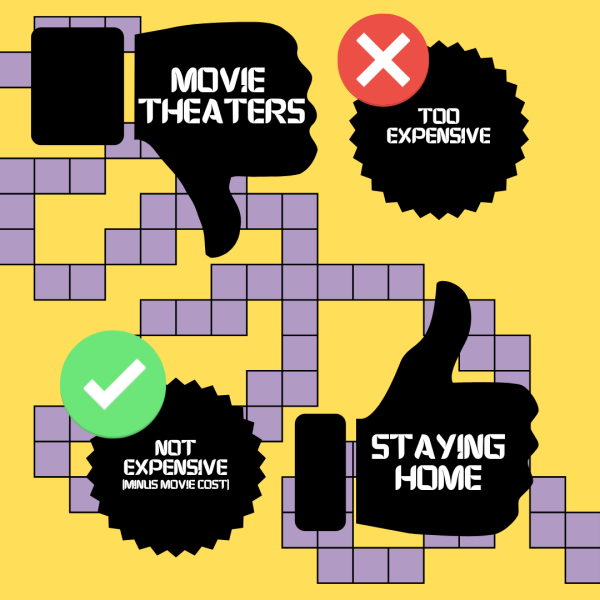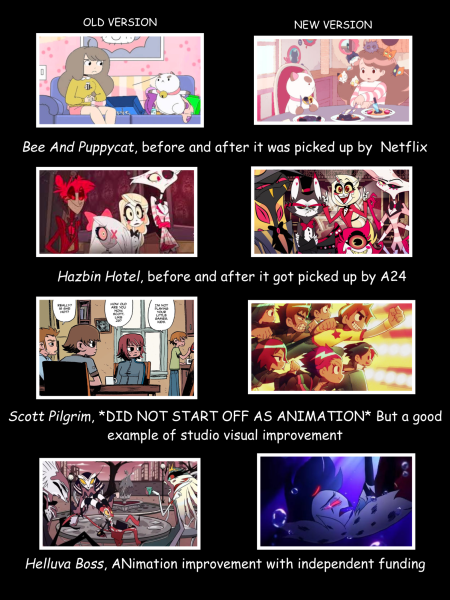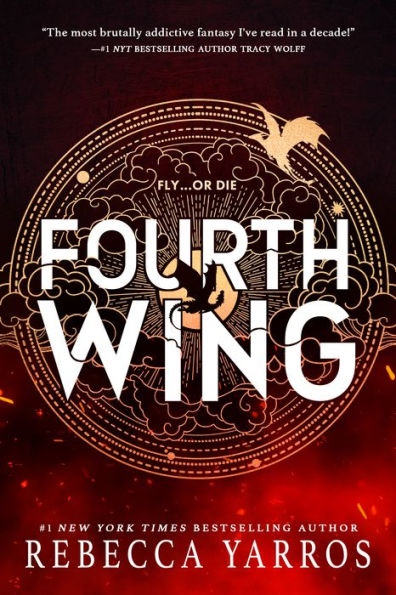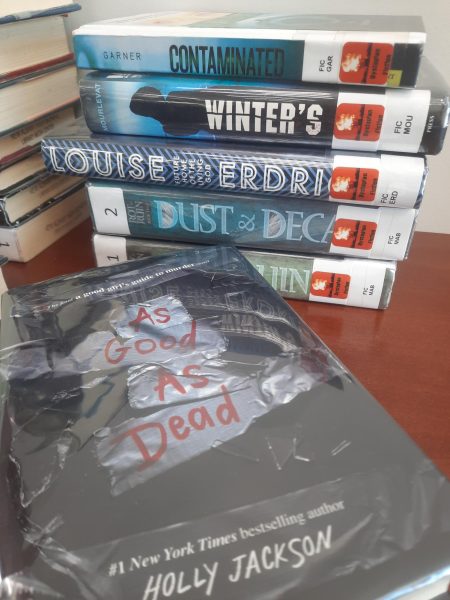Behind the screen
The issue with true crime media
October 31, 2022
Shows and documentaries like Dahmer grow in popularity more and more everyday. People rush to their phones and computers to watch more episodes and find new cases.
But are these shows and movies really a good thing? Or is their increasing popularity causing more harm than good?
Netflix released the series Dahmer on September 21, and has since then gotten 196.2 million hours viewed, according to Variety. That number is growing each day. But I don’t see that as a positive thing.
I’ll admit, I haven’t watched the show. And I have no plans to.
Don’t yell at me yet.
Dahmer is not the first of its kind. Many other shows like it, The Ted Bundy Tapes and Amanda Knox, have been made. I believe that telling these stories is important. That cases like Bundy and Dahmer need to be remembered.
But how many retellings do we really need? And how many of them are going to be through streaming platforms that make insane amounts of money off of them, while the victims’ families and survivors get nothing?
According to The NYpost, Netflix made 300 million off of Dahmer.
A big reason these cases are so important to keep telling is because so many people suffered, and are still suffering, in them. The telling of these stories isn’t supposed to make those people suffer even more.
In an interview with Insider, Rita Isbell, the sister of a victim of Dahmer, said, “The episode with me was the only part I saw. I didn’t watch the whole show. I don’t need to watch it. I lived it. I know exactly what happened.”
Netflix never contacted the families of any of the victims to ask them about the show. Netflix never contacted any of the families to talk to them about the show.
These are real people with real stories. These are people who have dealt with excruciating grief for years on end. They’re real people who deserve to have a part in telling their stories and their families stories.
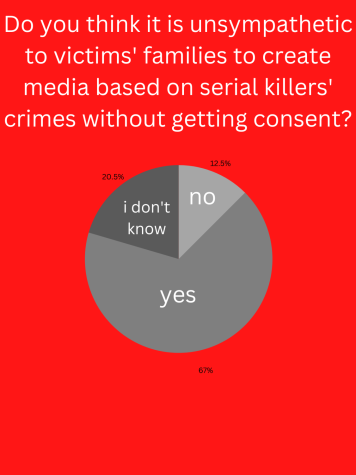
These victims aren’t characters.
In another interview with Insider, the mother of Tony Hughes (another victim of Dahmer) said, “I don’t see how they can do that, I don’t see how they can use our names and put stuff out like that out there.”
This isn’t just about Dahmer, though.
In August of 2021, Gabby Petito was killed by her boyfriend. In May of 2022, Lifetime had announced the movie that was going to be made about her case. When asked about the movie and if they believed it was too soon, Lifetime and the director of the film (Thora Birch) said that it is a part of Lifetime’s stop violence against women public affairs initiative, and that they’d been looking in on the case since February.
Although Lifetime claims the movie may be going towards a good cause, it doesn’t do any good for the Petito family.
Once again, the streaming platform didn’t ask or tell Gabby’s parents about the movie.
The AWARE foundation (a foundation that helps with domestic violence, and missing persons awareness), which has partnered with the Petito family, released a statement about the movie. It read, “We thought our followers should know that the Lifetime movie on Gabby Petito has no connection to the Petito family nor did they give their approval”, according to Patch.
Gabby Petito’s family has suffered for months since her case. They are the best people to tell her story, because that right was taken away from her. She was a daughter, a person who loved traveling and had goals, and she was an important part of her family’s life.
I’m not saying that true crime should never be talked about or that people shouldn’t watch the content. What I’m saying is that there’s a respectful way to do it, and most streaming platforms don’t do it.
Victims’ families should be involved in telling their stories. The stories should be told like they were major events that seriously impacted peoples’ lives, deal with sensitive topics and like they’re telling the story of real people. We don’t need 98 different variations and tv shows of cases to give awareness.
These documentaries and shows need to actually help the victims and those they’re survived by. Streaming platforms should give resources, and continue their activism outside of one case.
“There is a difference between true crime journalism and true crime entertainment.” Patch said.

